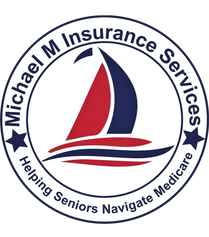Turning 65? It’s Time to Celebrate—And Get Serious About Medicare
Birthdays are a time for balloons, cake, and celebration. But if your 65th is around the
corner, there’s one more thing that belongs on your party checklist: Medicare.
Sure, Medicare doesn’t come with candles or confetti—but it is a milestone worth your attention.
The choices you make as you approach your 65th birthday can affect your health coverage,
finances, and peace of mind for years to come.
So before you dive into the cake, take a moment to learn what needs to happen—and when.
Whether you’re retiring soon, still working, or somewhere in between, age 65 is a critical
Medicare enrollment marker.
Here’s why:
- Medicare Initial Enrollment Period (IEP) starts 3 months before the month you turn 65 and ends 3 months after.
- Missing this window can lead to late enrollment penalties and gaps in coverage.
- Some people are automatically enrolled. Others need to sign up— and not everyone knows which group they’re in.
The bottom line? Even if you’re feeling great and planning a big birthday bash, you need to
make sure Medicare is part of your prep.
Why Turning 65 Matters for Medicare
Questions to Ask Yourself Before the Party Starts
Not everyone’s Medicare situation is the same. Here are some quick questions to guide your
next steps:
Are You Still Working?
If you’re covered by employer insurance , you may be able to delay some parts of Medicare
without penalty. But it depends on:
- The size of your employer (20+ employees vs fewer)
- Whether your plan is considered creditable coverage
- If you’re on a spouse’s employer plan
It’s not one-size-fits-all. A quick conversation with HR (or a Medicare professional) can clarify
your options.
Do You Take Prescription Medications?
Medicare Part D covers prescription drugs—but you must enroll in it separately unless you
choose a Medicare Advantage plan that includes drug coverage.
If you skip it without having other creditable coverage, you may face permanent penalties later.
Will You Need Help Paying for Healthcare?
There are Medicare Savings Programs , Extra Help, for drug costs, and low-cost Medicare
Advantage plans with $0 premiums. Even if you’re middle income, it’s worth checking what you
qualify for. A little research could save you a lot of money.
Are You Planning to Travel or Move?
Your Medicare plan should move with you—but not all of them do.
- Medicare Supplement (Medigap) plans usually allow you to see any doctor nationwide who accepts Medicare.
- Medicare Advantage plans may have local networks , but some larger national plans include travel benefits or multi-state access .
Do You Have Special Health Needs?
If you have a chronic condition or disability, you may be eligible for a Special Needs Plan (SNP)
or additional support through Medicare. These plans are designed to coordinate your care and
reduce your out-of-pocket costs.
What Happens If You Wait Too Long?
Delaying your Medicare decisions can cost you in more ways than one:
- Late enrollment penalties for Part B and Part D
- Gaps in coverage if you miss your IEP
- Stress and confusion during a health emergency when you’re not properly covered
And let’s be honest— scrambling to understand Medicare during a medical crisis isn’t how
anyone wants to spend their time.
You Can Celebrate and Stay Covered
Look, we’re not here to kill the birthday vibe.
You should absolutely celebrate turning 65—it’s a big deal! But don’t let the excitement of the
moment cause you to miss out on the important stuff.
Think of Medicare planning like wrapping a gift for your future self: it’s not glamorous, but it’s
necessary.
Final Thoughts: Medicare Is a Milestone, Not a Mystery
If you’re turning 65, Medicare doesn’t have to feel overwhelming. With the right guidance, a little
planning, and the willingness to ask a few questions, you can confidently take the next step in
protecting your health and your future.
So go ahead— have your cake . But don’t forget to check your Medicare to-do list first.

